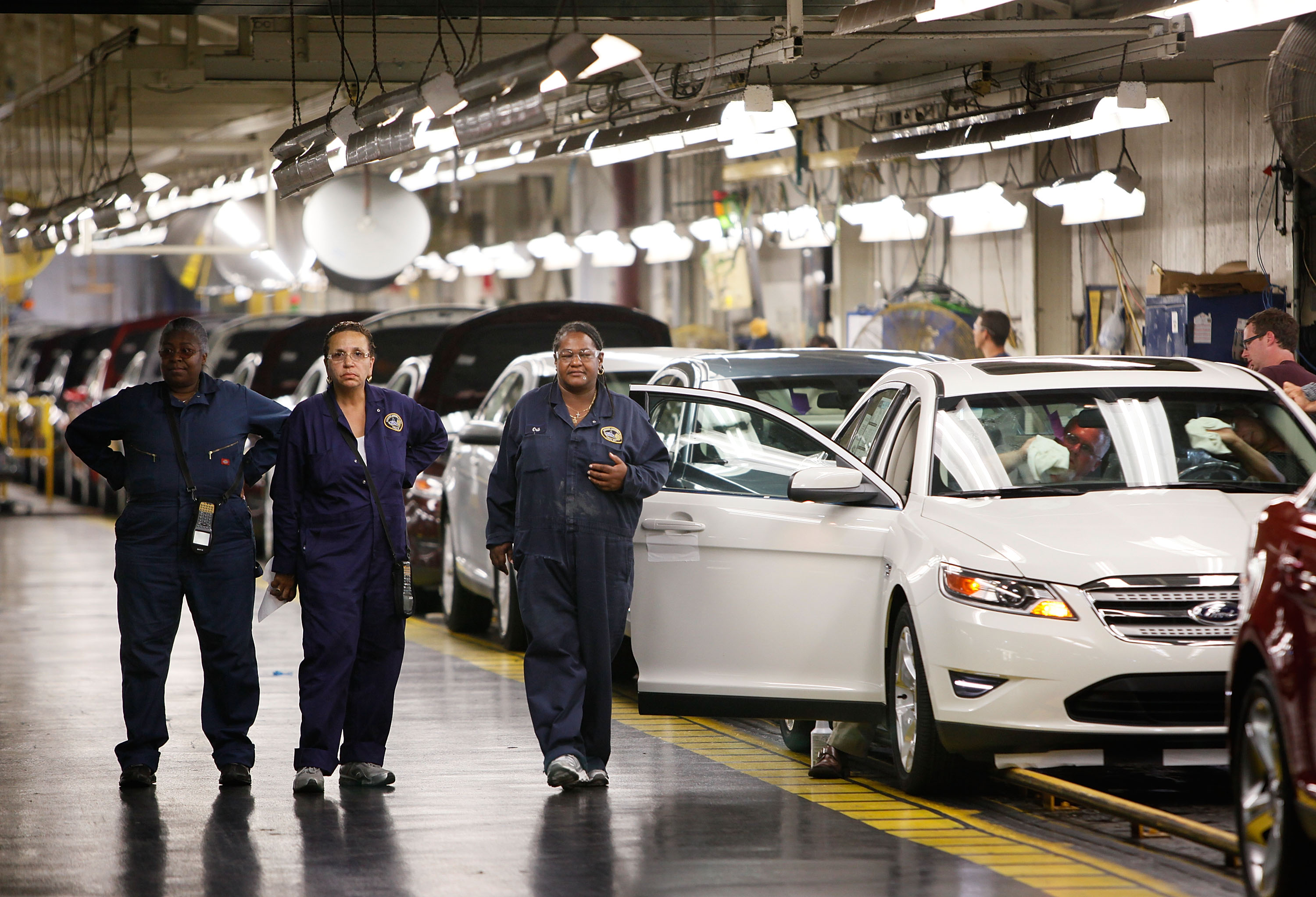Big Labor's diminishing clout
Barely 11 percent of U.S. workers are in a union today. What does that mean for the organized labor movement?

A free daily email with the biggest news stories of the day – and the best features from TheWeek.com
You are now subscribed
Your newsletter sign-up was successful
The smartest insight and analysis, from all perspectives, rounded up from around the web:
Organized labor has come up short in "the most important trial of unions' influence since President Trump's win last year," said Max Ehrenfreund at The Washington Post. After years of dogged campaigning, the International Association of Machinists last week failed to sway the workers at a major Boeing factory in South Carolina to organize. Nearly three-quarters of the North Charleston plant's 3,000 employees voted against unionizing. The defeat wasn't a surprise. South Carolina is "profoundly hostile to organized labor." Just 1.6 percent of the state's workers belong to a union, the lowest level in the U.S. But organizers hoped to gain a foothold in the state's resurgent manufacturing sector by unionizing workers at one of its most recognizable companies. Now, the machinists will have to wait at least a year before petitioning for another vote.
The problem for unions is that the whole country looks increasingly like South Carolina, said Josh Eidelson at Bloomberg Businessweek. It's a right-to-work state, which means employees aren't required to pay union dues, even if they work under a union-negotiated contract. That deprives organized labor of a key source of revenue and reduces membership: "The unionization rate in right-to-work states is less than half the rest of the country's." Kentucky and Missouri both banned the mandatory collection of dues this year, bringing the total number of right-to-work states to 28. A conservative majority on the U.S. Supreme Court could further advance the right-to-work cause by striking down mandatory union fees for government employees. That would devastate an already weak labor movement. Only 10.7 percent of U.S. workers are in a union today; in 1983, the union membership rate was 20.1 percent.
The Week
Escape your echo chamber. Get the facts behind the news, plus analysis from multiple perspectives.

Sign up for The Week's Free Newsletters
From our morning news briefing to a weekly Good News Newsletter, get the best of The Week delivered directly to your inbox.
From our morning news briefing to a weekly Good News Newsletter, get the best of The Week delivered directly to your inbox.
It doesn't help that President Trump is driving a wedge into the labor movement, said Noam Scheiber, Maggie Haberman, and Glenn Thrush at The New York Times. Trump performed better among union voters, a core Democratic constituency, than any Republican since President Reagan in 1984. Many union members were won over by Trump's promises to rewrite trade agreements, spend on infrastructure, and punish employers that outsource jobs. Workers at Boeing's South Carolina factory "spoke of a rising feeling of empowerment tied to the president's posture," which led some to conclude that they didn't need to unionize while Trump had their back.
Tellingly, the president didn't mention the union vote when he visited the Boeing plant last week, said Andrew McGill at The Atlantic. The White House supports right-to-work laws, and Trump's first choice for labor secretary, fast-food executive Andrew Puzder, "was about as unpalatable to labor leaders as anyone he could have picked." But the president has never started "a fight with unions en masse." He simply ignores them — presumably to avoid alienating his working-class voters who still rely on union protection — and makes promises to deliver jobs and better wages on his own. At this point, a frontal assault on labor might not even be necessary, "and that may be the biggest problem for unions of all."
A free daily email with the biggest news stories of the day – and the best features from TheWeek.com
-
 How to Get to Heaven from Belfast: a ‘highly entertaining ride’
How to Get to Heaven from Belfast: a ‘highly entertaining ride’The Week Recommends Mystery-comedy from the creator of Derry Girls should be ‘your new binge-watch’
-
 The 8 best TV shows of the 1960s
The 8 best TV shows of the 1960sThe standout shows of this decade take viewers from outer space to the Wild West
-
 Microdramas are booming
Microdramas are boomingUnder the radar Scroll to watch a whole movie
-
 The pros and cons of noncompete agreements
The pros and cons of noncompete agreementsThe Explainer The FTC wants to ban companies from binding their employees with noncompete agreements. Who would this benefit, and who would it hurt?
-
 What experts are saying about the economy's surprise contraction
What experts are saying about the economy's surprise contractionThe Explainer The sharpest opinions on the debate from around the web
-
 The death of cities was greatly exaggerated
The death of cities was greatly exaggeratedThe Explainer Why the pandemic predictions about urban flight were wrong
-
 The housing crisis is here
The housing crisis is hereThe Explainer As the pandemic takes its toll, renters face eviction even as buyers are bidding higher
-
 How to be an ally to marginalized coworkers
How to be an ally to marginalized coworkersThe Explainer Show up for your colleagues by showing that you see them and their struggles
-
 What the stock market knows
What the stock market knowsThe Explainer Publicly traded companies are going to wallop small businesses
-
 Can the government save small businesses?
Can the government save small businesses?The Explainer Many are fighting for a fair share of the coronavirus rescue package
-
 How the oil crash could turn into a much bigger economic shock
How the oil crash could turn into a much bigger economic shockThe Explainer This could be a huge problem for the entire economy